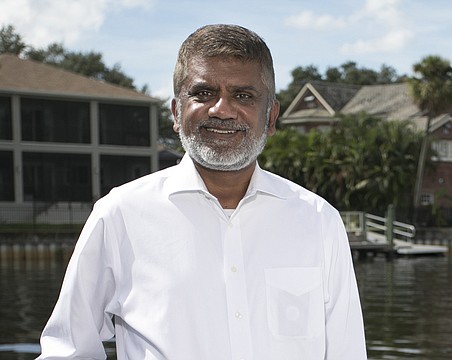More than 30 years ago, I began a cardiology group practice in St. Petersburg, Bay Area Heart Center. I invested $30,000 — all of my savings at the time, and worked 90 to 110 hours per week for three years before I hired a partner. Since then, the practice has grown to more than 45 employees, including 12 physicians.
I was taken aback by President Obama's recent remark, “If you've got a business, you didn't build that. Somebody else made that happen.”
Did I have help building this business? Yes. I have been graced with fine physician-partners, nurses, physician assistants, secretaries, medical assistants and a remarkably proficient and dedicated administrative staff.
But with all due respect, Mr. President, I must disagree with you. I did build my business, and nobody else made it happen. Moreover, along every step of the way, the federal government has been more of an impediment to the growth of my business than a facilitator.
From Medicare dictating to me how much I can charge a patient for my services, to Occupational Safety and Health Administration (OSHA) requirements against using lip balm in “patient-care” areas; federal rules, regulations and bureaucracies have heaped increasing administrative costs on my business without one iota of improvement in patient care.
Now, with the sword of “Obama Care” dangling over us, the outlook is even direr.
Most small business owners I know work incredibly hard and sacrifice personal health, well-being and relationships to grow their company. We aren't looking for a handout or a free ride. We would appreciate, however, the government unshackling us form a tsunami of regulations that only choke and impede our ability to compete in the free market.
The burdensome rules in the health care field could, and probably do, fill the federal registry. Profits in private medical practices are becoming so squeezed that a recent CNN Money survey (June 27) polled 673 physicians across 29 specialties by MDLinx, a medical reference website for physicians. Seventeen percent of all doctors with a private practice said they could foresee closing it within a year if their financial situation doesn't improve. The major reasons cited were significant school debt, rising business expenses and administrative hassles, shrinking insurance reimbursements and costly malpractice insurance.
My office nurse spends almost a day instructing a new employee on the Health Insurance Portability and Accountability Act (HIPAA), OSHA and other alphabet-soup agency rules and policies so we can stay within compliance guidelines. And this time doesn't even account for electronic medical-record (EMR) training or how to do the job for which he or she was hired. So for those one to two days, our nurse cannot assist doctors or contribute to actual patient care. And if the new employee decides to quit within the 90-day probation period, the nurse must do this all over again.
In fact, probably the fastest-growing position in small businesses these days is the compliance officer.
Also consider this: A cardiologist's office is a hazardous place to work. According to OSHA, dangerous substances such as alcohol wipes and disinfectants (which anyone can purchase in a drug store) must be described to employees. To comply with OSHA, you must have a written list of the hazardous chemicals stored or used in your office. For each of these, your employees must also have access to the manufacturer-supplied Material Safety Data Sheet. The MSDS outlines the proper procedures for working with a specific substance and for handling and containing it in a spill or other emergency.
Then there is HIPAA. It was meant to protect patients' privacy. Who could possibly be opposed to that? Unfortunately, the regulations are too open to interpretation. This means every facility has a different policy. Thus, when you sign in at the front desk to be seen, you might not see other patients' names. However, when it is your turn to see the doctor, you can hear someone yell, “Mrs. Smith, please come back now.”
The goals for many federal government mandates are well intentioned, but the execution of them and impact on physician offices are counterproductive. Through Medicare, or Centers for Medicare & Medicaid Services (CMS), financial incentives, we are encouraged to report Quality Measures, submit paperless drug orders and use EMR. However, the programs don't work in tandem with all health care providers, resulting in costly duplication of time and effort.
Many other mandates are unfunded, resulting in the doctor and his staff doing more work to get paid less. For example, CMS requires us to pay for a translator for any patient who doesn't speak English at the cost of $150 per hour, which is more than the reimbursement for a typical office visit. Medicare recently took away all codes related to performing consultations, resulting automatically in cuts to specialists.
Innovations in health care don't come from some federal agency “think-tank,” which is kind of an oxymoron. If you look around from city to city, the best centers of excellence, be it an eye, orthopedic or heart institute, are named for private citizens who are philanthropists — not some senator or congressman.
It doesn't take government to help small businesses to grow, Mr. President. The best it can do is get out of the way and let the free market and the American spirit of entrepreneurship flourish.
Dr. David M. Mokotoff, M.D., is founder and former CEO of the Bay Area Center, P.A. in St. Petersburg.





